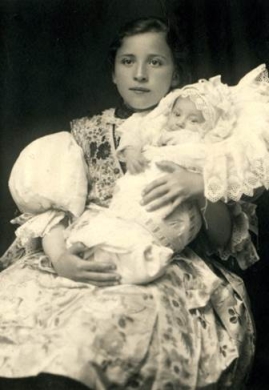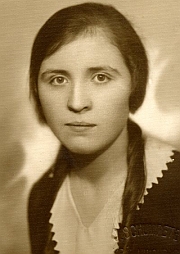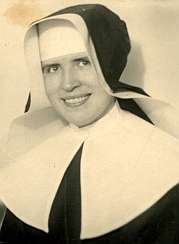Short Biography of Mother Vojtěcha
Text to read – here.
Downloads:
- biographical information (Czech pdf download here)
- short biography (Czech doc download here)
- detailed biography (Czech doc download here)
What can Mother Vojtěcha teach us today?
“Each of us has a unique way of experiencing faith. Every age has its peculiar problems, so God gives different personalities to draw our attention to needs of our time.”
(P. Jan Adamík SJ)
- At a young age she was able to decide for her vocation despite personal hardship, as she was homesick for her family as well as to overcome the death of a beloved father. She followed her Lord with an attitude of faith and a great determination.
- She was able to accept the hardships of her time associated with the period of establishment of the Protectorate of Bohemia and Moravia as well as the period of the Second World War and accept the consequences like the impossibility to study at university and do the job of teacher being a sister, because religious schools were closed and as a sister she was not allowed to continue her university studies.
- She was able to serve a person in need according to circumstances of her time. Thus, during the war, according to possibilities, she either stayed with the wounded and the sick in hospital or at school. She was ready to undergo a necessary requalification and provide a needed service (office work, cleaning).
- At the time of the communist totalitarianism she bravely accepted a task to take into hiding a young Franciscan who escaped the destruction of a monastery. Later on, this deed brought her in a trumped-up process a sentence and imprisonment. In prison she bravely confessed her faith and defended the values of Christian life. She fought for them and was even punished and victimized. Whether it was for manifestation of love for her co-prisoners or for writing a petition to a UN Secretary General asking for herself and other prisoners at least minimum rights to religious life in prison, or refusing to work on Sundays. In prison she was able to call for justification and invoke the rights to humane conditions and actions of the executors of punishment according to conscience.
- After eight years of prison she returned unbroken and in faith was able to benefit from this difficult period of life. Although she came out of prison with broken health, she looking at this period of life very positively, as a school of trust and abandonment in God’s hands.
- The difficulty of her time led her to a deep and honest life with God and people. She understood her vocation to Mercy as an excellent way to fullness of life in love. Her life showed a great maturity, creativity and determination to fulfil God’s will, especially when, at the age of 56, was elected a Superior General of the Congregation. Despite the limited possibilities resulting from a deepening influence of the totalitarian regime during the period of “Normalization”, she led with a great confidence her religious community through the post-conciliar renewal from 1970 to her death in January 1988.
- Shortly before her death she told the youngest members of the Congregation, i.e. to sisters that she accepted secretly at high risk, that she could die, because she saw that they understood well their vocation.
- In an environment completely subordinate to the thinking of the time, she bravely sought a new course of life under the influence of the Holy Spirit, fearlessly and with ingenuity asking for the impossible, for the permission to accept the youth, she wrote letters to the highest government officials and took advantage of every opportunity of a personal meeting in order to achieve this and she also motivated for it superiors of other communities.
- In addition to the social dimension of her activities, she did not neglect her inner growth, on the contrary, she carefully cared for the development of her life with God, people and entrusted sisters.
- She tirelessly sought the path for our community after the Second Vatican Council in a society that was far away from the mentality of the Gospel. In this effort she was tenacious and resourceful. Even today, we are encouraged with her words spoken with great passion for the sanctity of life:
“It is not enough to have an ideal, it is necessary to fight for it.”
(Mother Vojtěcha)
|
|




|